How To Overcome Fear Of Driving: Driving is frequently regarded as one of the actions that triggers dread and terror the most frequently. Numerous names, including amaxophobia, ochophobia, motorphobia, and hamaxophobia, have been given to this particular phobia of driving. The continuous and severe dread of operating a car and slipping out of control is the cause of this particular phobia.
Different traffic scenarios might make someone feel uncomfortable. Driving through a tunnel, across a bridge, on the motorway, or even just being in the passenger seat might make someone uneasy or afraid. Driving phobia is more severe and incapacitating than anxiety-related phobia. Driving phobia can interfere with everyday activities and result in long-term mental health issues if it is not treated.
Recommended: Countries with the Fastest Growing Economy
Tips On How To Overcome Fear Of Driving
Here are some strategies for overcoming driving phobia:
1. Investigate the circumstances that led to your worry: It’s helpful to first comprehend the source of driving anxiety in order to combat it. Recall times when you felt uneasy from your experiences operating a vehicle, travelling as a passenger, or even just being around vehicles. Your nervousness may have started because of a recollection of an anxious parent operating a vehicle or a television program that featured a particularly devastating auto accident.

Did a recent accident you or a loved one had occur before your symptoms of anxiety? You can more successfully deal with your driving anxiety if you know what’s causing it. For instance, it could be preferable to address that memory in order to overcome your symptoms if a tense driving circumstance was the cause of your anxiety.
On the other hand, it can be ideal for you to get professional assistance if you discover that you have anxiety tendencies as a person.
2. Reframe your thinking: Driving anxiety sufferers may encounter disturbing ideas that are quite upsetting. These worries could involve becoming lost or stranded, freaking out in an emergency, or simply just wondering what would happen if there were dangers or mishaps. It’s simple to concentrate on these ideas and allow them determine whether we avoid driving or have limitations on our talents, but shifting our perspective may be beneficial.
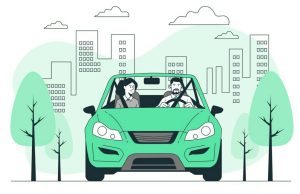
For instance, if you’re anxious about merging onto the motorway, focus on all the times you’ve successfully done so without running into any trouble rather than on the possibility for danger. Or, if you’re worried that a crisis may make you panic, tell yourself that you know what to do and go over the measures you’ll take to handle the problem.
Try to put yourself in a thoughtful state before you even start the car if your mind is racing with a myriad of potential scenarios. To do this and maintain your calm, play some soothing music. You may also mentally make a list of items you observe in your surroundings (such trees, dog walkers, stores, etc.) to help you stay grounded if you start to doubt your abilities while driving.
Recommended: Most Developed Countries In The World
3. Don’t stay in your comfort zone when driving: Getting practice driving outside of your comfort zone might do wonders for reducing your sensations of anxiety if you’re feeling ready to address your symptoms head-on.
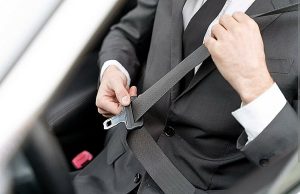
Many individuals experience anxiety when traveling somewhere they’ve never been, but as you push your boundaries, more and more locations will start to seem familiar to you.
4. Focus on driving at the time: It might be easy to consider all the unknowns you may experience on the road, whether you’re taking a long or short journey to a strange location. You’ll be on edge the whole journey if you’re anxious about things like heavy traffic, crossing a bridge, or taking that one unprotected left turn.
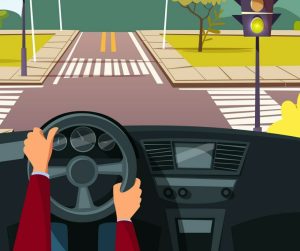
Instead of letting that one terrifying element control your emotions, consider focusing on moving through each stage of the trip one step at a time. Always maintain your attention on the road and follow safe driving practices.
Also see: Countries with the best education system in the world 2023
5. Try out several methods of relaxing: Utilizing relaxation techniques that are effective for you is another strategy to manage anxiety while driving. Learn about your symptoms of anxiety so you can discover a cure for them. Anxiety may appear in many different ways. An elevated heart rate is a typical sign of nervousness, but deep breathing exercises can help you relax.
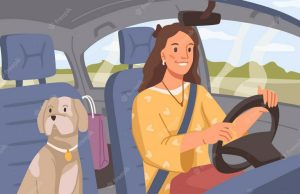
When behind the wheel, some people experience stress in their neck and shoulders. If you identify with it, try to relax your muscles by beginning with your hold on the steering wheel and moving up your arm to your shoulders.
Additionally, when you have successful experiences driving in new locations, your confidence in yourself and your driving abilities will grow, which will assist you in overcoming your tendency to become apprehensive. Keep in mind that driving outside of your comfort zone will make you anxious, so it’s wise to start out slowly and show patience as you advance.
6. Consult a specialist for assistance: It is important to speak with a mental health expert if your driving anxiety is severe and severely affects your daily activities. Your symptoms could be the result of a more serious issue, such an anxiety condition, posttraumatic stress disorder, or phobia, depending on your heredity and other variables.
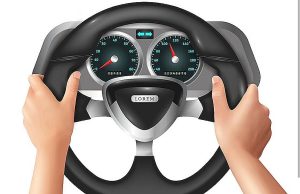
To successfully learn to deal or find the finest sorts of therapy, it’s important to seek out assistance from someone who specializes in these mental health issues.
Also see: How To Concentrate/Focus When Studying
7. Take CBT into consideration: A specific kind of psychological therapy called cognitive behavioral therapy (CBT) has been shown to benefit those with anxiety problems. In order to recover control and cope efficiently, CBT analyzes your thinking and behavior patterns and focuses on the unlearning of undesirable behaviors.
If CBT treatment seems to be beneficial for your problems, you may find a CBT therapist close to you via the Association for Behavioral and Cognitive Therapies’ Therapist Directory.
8. Examine virtual reality: Even though exposure therapy has been proven to be a successful anxiety treatment, not everyone is ready to drive outside of their comfort zone. Virtual reality (VR) exposure is one approach to continue to work toward conquering your anxiety via experience. In an environment that patients feel safe and acceptable, VR exposure therapy (VRET) enables therapists to provide progressive, controlled, customized, and immersive treatment for anxiety disorders and phobias.
It has been effective in treating PTSD, anxiety disorders, and panic attacks, and it gives patients the chance to develop new behavioral coping mechanisms with the help of a therapist. If you’re considering VRET, speak with your doctor to find out if it’s an option for you, or go to a VR clinic nearby.
Recommended: Most Powerful People In The World 2023
Conclusion
Like other particular phobias, a fear of driving can disrupt your regular activities and degrade your quality of life. Although up to 66% of drivers struggle with driving anxiety, there are strategies to comprehend and get through it. Utilize our advice for overcoming driving anxiety, but keep in mind that you should also receive expert mental health assistance to identify the cause of your anxiety and acquire coping mechanisms. Make sure you and your car are insured by a car insurance coverage so you are protected in any situation for extra peace of mind when driving.
Make an appointment with your doctor or a mental health professional who has expertise identifying and treating phobias if you experience anxiety, fear, or panic when operating a vehicle or riding as a passenger.

Edeh Samuel Chukwuemeka, ACMC, is a lawyer and a certified mediator/conciliator in Nigeria. He is also a developer with knowledge in various programming languages. Samuel is determined to leverage his skills in technology, SEO, and legal practice to revolutionize the legal profession worldwide by creating web and mobile applications that simplify legal research. Sam is also passionate about educating and providing valuable information to people.